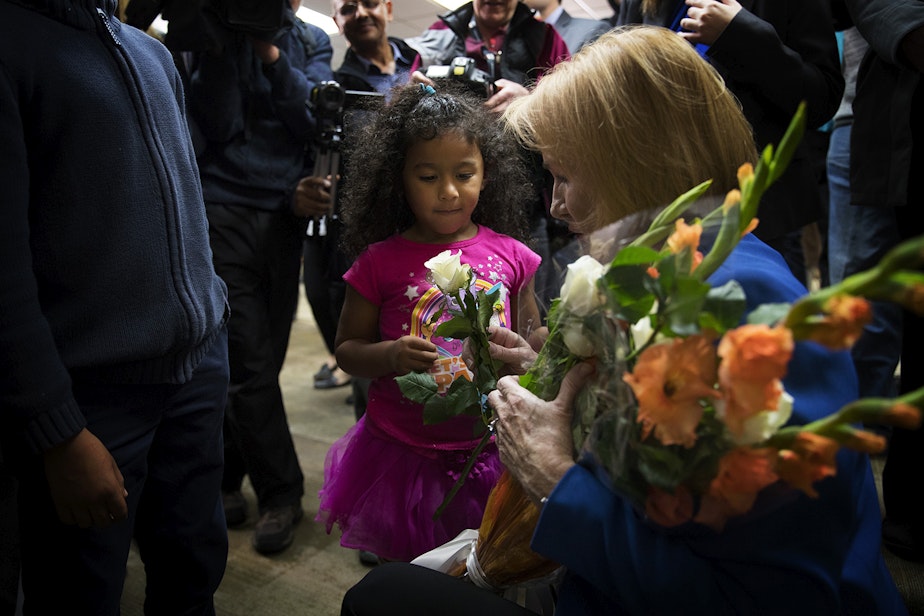Sexual harassment is all over the news. Here’s how Seattle’s new mayor is thinking about it

It’s the first day of her new job. Seattle Mayor Jenny Durkan reads her name on the door of her office at City Hall. What’s going through her head?
“It’s real. And the responsibility is enormous,” she told KUOW’s The Record.
It was a tumultuous year for her new office. Durkan is the fourth mayor to serve in 2017 after Ed Murray stepped down from the office while facing claims of sexual assault.
With men like Harvey Weinstein, Kevin Spacey and NBC’s Matt Lauer losing their positions because of allegations of sexual harassment and misconduct, KUOW’s Bill Radke asked Durkan if she should have called on Murray to resign sooner.
“I said many times I don't believe I was in any position to judge what happened over three decades ago,” Durkan said.
Sponsored
But sexual harassment and discrimination are clearly on her mind as she takes office.
“This is an issue that we know has been rampant in every kind of work situation. As a woman coming up in my profession there was no job I ever had that I didn't feel this kind of discrimination,” she said.
Gender and racial discrimination are topics that have come up in the recent weeks as she has worked with her transition team and now it’s part of her official agenda.
On Wednesday she signed an executive order reaffirming the city's commitment to its race and social justice initiative.
But the city's civil rights office told KUOW they're having trouble doing their job, partly because they don't have any enforcement authority. Durkan said it’s an issue she cares deeply about.
Sponsored
“I've been talking to City Council already to really do a top-to-bottom review of the Office of Civil rights to make sure that it's got the right powers and the right people in place,” she said. “We're going to make sure it gets done right.”
Another big challenge that Durkan’s administration will have to tackle is Seattle’s homelessness crisis.
“This problem has been years in the making. And there is no immediate solution, but we'll have to have strategies in place for the different people and different populations that find themselves in those desperate conditions,” she said.
“We will have a range of strategies to deal with that. And at the end of four years we hope that we have more people who are not just housed, but have the support they need for us to be proud of ourselves as a city.”
Produced for the Web by Jamala Henderson.


